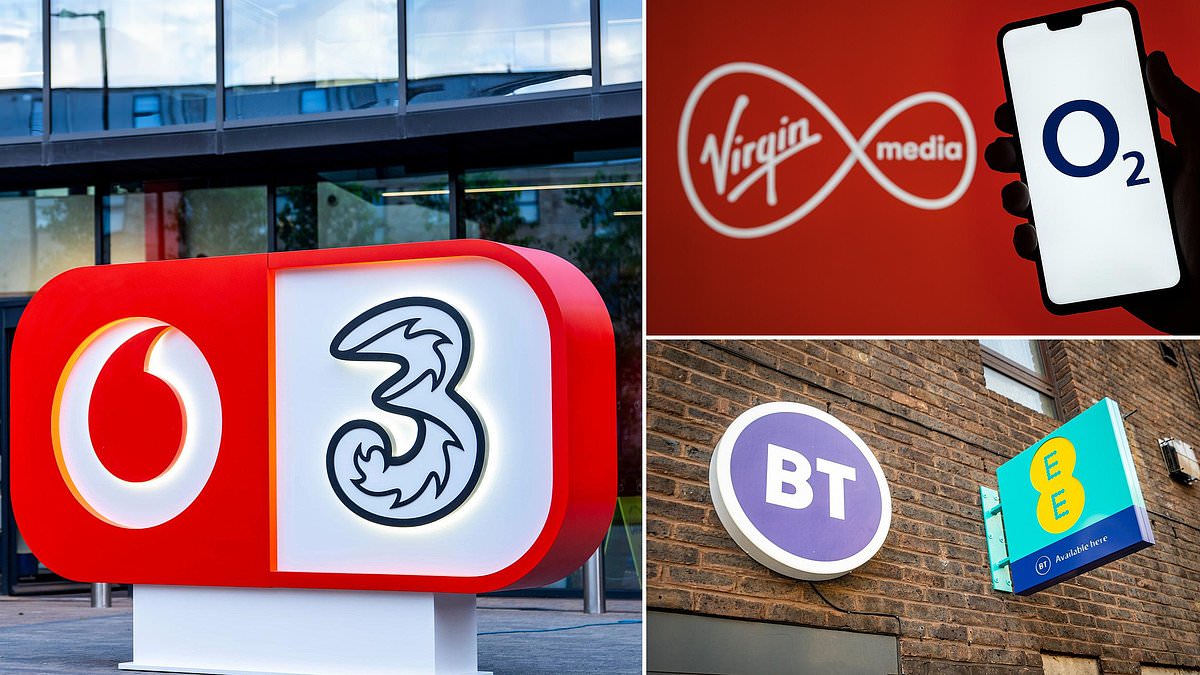Copyright dailymail

Britain's biggest phone networks have pledged to put an end to scammers being able to bombard Britons with cold calls from overseas call centres. BT and EE, Vodafone Three and Virgin Media O2 have committed to blocking foreign call centres from being able to impersonate banks within the next year. It is part of a new agreement between the Government and phone companies to quell the scourge of cold calls from overseas. The new Telecoms Charter will be signed in the BT Tower in London this morning by six major phone companies. Under the agreement, phone network giants will be forced to upgrade their networks within the next year to eliminate the ability for foreign call centres to spoof UK numbers. They must making it clear to customers that a call originates from abroad if a scammer has 'spoofed' a number to make it appear as though a UK number is calling. Call spoofing is a tactic used by scammers to deceive UK customer into thinking they are getting a call from a UK number when in reality they are calling from overseas. They do this by changing the phone number and or the name displayed in the incoming caller ID information. This makes it more convincing to those receiving a call that it is from a UK number. Indeed, 96 per cent of mobile users decide whether to answer a call based on the number displayed on their screen, with three-quarters unlikely to pick up if it's from an unknown international number, data from the Home Office shows. Scammers will then impersonate bank managers, Government officials or the police to trick people into handing over their card details or transferring money with a number of excuses. Aside from identifying calls from abroad on phone displays, phone companies will use sophisticated call-tracing technology to hunt down scammers under the new plans. Call traceback schemes will be used by phone networks to trace the origin of a call back to its source. These involve identifying the end point of a call, whoever connects the call to the customer, and asking who they got the call from. The process continues with each upstream provider until the source of the call is identified. VoLTE, or Voice over Long-Term Evolution, is another technology phone networks will deploy to protect customers. It allows you to make voice calls over a 4G network instead of traditional voice networks like 2G or 3G. This technology enables high-quality voice calls and allows faster call setup times and better voice quality compared to older networks. It's the phone call equivalent of 5G internet on phones. Heightened data sharing powers between phone companies and the police will give the police the intelligence to track down scammers operating across the country and dismantle their operations. While victims will receive faster support from their phone provider, as phone networks commit to a response time of two weeks when a customer has been victim to a scam. New plans to boost data sharing with the police will shine a light on mobile networks that let scam calls slip through the net. Fraud has become the UK's most reported crime. In the first half of 2025, a staggering £629million was stolen by criminals – a 3 per cent climb compared to the same period in 2024, according to banking trade group UK Finance. The Home Office says the new plans will make it 'harder than ever' for criminals to deceive Britons through scam calls. Minister for fraud, Lord Hanson promises 'call spoofing will be eliminated within a year[...] 'We're stepping up our defences to protect victims and make sure the UK is the hardest place in the world for scammers to operate.



